COLORFULTEA
Yunnan Dianhong Black Tea - COLORFULTEA
- Regular price
-
$4.90 USD - Regular price
-
- Sale price
-
$4.90 USD
Couldn't load pickup availability
Brewiny difficultly: General difficulty
Best Season to taste: Summer
Origin: Lincang, Baoshan, Fengqing, Xishuangbanna, Dehong, etc. in the Southern and Southwestern Yunnan Province
Shape: black with luster, regular.
Aroma: thick and dense.
Liquid: bright red.
Taste: strong.
Recognizing: Yunnan black tea is one kind of famous black teas in the globe, including Yunnan gongfu black tea and Yunnan broken black tea. Yunnan gongfu black tea is traditionally exported and popular in Europe, the Middle-east countries, Japan, etc. It has an established reputation. According to tea strips, brokenness, tenderness, clarity, color, luster and other apparent factors, we can judge the quality of various types of tea. Gungfu tea with tight strips is of good quality while the top quality of broken black tea is featured with regular, lustering leaves and small particles.
Processing: Yunnan black tea uses the fresh big leaves in a proper degree of tenderness as the original materials. It can generate lots of aflavin and thearubigins, so the soup is red and bright with good quality.
Brewing method: Yunnan gongfu tea is suitable for pure drinking. Usually brew the tea with the purple sand teapot. The water temperature of 100℃ is proper. Mixed drinking method is appropriate for Yunnan black tea. You can add lemon, milk, etc. to relish the tea. Due to climatic reasons, Yunnan black tea is tall and corpulent with thick and stout buds. Even tea shoots grow into 5-6 leaves, they are still soft and tender, and the amount of polyphenol compounds and alkaloid contained in the tea leaves ranks first among all the tea. The picking season of Yunnan black is from middle March to middle November every year. The tea is divided into spring tea, summer tea and autumn tea according to the harvesting time.
Tea Grade: Special Grade.
Includes: Tea Leaves, Packing Bag.
Place Of Origin: Yunnan, China.
Quality Guarantee Period: 24 Months.
Home: Yunnan
Leaf: Thick and strong, of dark maroon tinged with yellow fuzz.
Brew: Maroon, dancing with golden light around the rim, boasting a caramel fragrance.
Scoop: A mysterious tea. Why do the golden minerals float to the edge of the cup? They also turn the brew from dear to opaque as it cools.
Dianhong, Records of Yunnan Black Tea
Yunnan's regional tea specialty, Puerh, has been acclaimed far and wide since time began. By the end of the nineteenth century, India and Sri Lanka had started producing black teas in large quantities. This greatly influenced global production and sale of tea. As the Chinese province closest to India, the people of Yunnan were very much aware of this development. However, on account of Yunnan's traditional Puerh exports to Southeast Asia and domestic sales in Sichuan and Tibet, there was no great demand or reason for black tea to be produced in Yunnan Therefore, Yunnan's provincial government and tea producers, helped by experts returning from overseas study, continued to produce Puerh tea, tuocha (tea cakes), jin-cha and green tea.
History of Black Tea in Yunnan
Around 1935, Li Fu, a native of Fohai used to make small quantities of black tea which he would send to Wuhan for appraisal and evaluation. This is the earliest mention of Yunnanese black tea in Chinese. Why emphasize "in Chinese"? On the customs declaration form for export, the phrase "BLACK TEA" often appears in English. At that time, the six primary classifications for tea were not yet in use, and the British did not strictly distinguish between red and black teas. Therefore, "BLACK TEA" was used to refer to many different types of what would be referred to in Chinese as both red and black teas": Hubei Mizhuan, Qingzhuan, Hunan black tea, Yunnan Puerh, etc.
Investigation
Throughout history, China had been the world's sole exporter of green tea, but by the end of the nineteenth century, the quality of Chinese tea had declined; the situation had hit rock bottom, among global tea producers, China had become the laughing stock of the world; things had never been so bad.
In 1938, the world was on the way to war. Warfare requires the exchange of resources for weapons, and at that time, tea was China's most valuable resource. China's southeastern tea producing districts had been reduced to warzones, and the China Tea Company was forced to develop tea growing areas in remote areas of the southwest where transport was inconvenient. On 20th September 1938, the China Tea Company appointed Zheng Hechun as their director. He and the technician Feng Shaoqiu flew to Kunming to survey tea production in Yunnan.
After meeting with officials in Yunnan, these two men set out on a journey to better understand the production and marketing of tea in Yunnan. The chaos of the war had caused the citizens of Kunming to flee the city, while the road south to Burma had been closed. The two men were subsequently only able to investigate the tea market in Kunming, and make a brief inspection of Yilang, the closest tea producing area to Kunming.
On 2nd October, Shou Jingwei, general manager of the Chinese Tea Company travelled to Hong Kong from Chongqing. Along the way he stopped in Kunming and spoke with several high-level officials there, investigating the possibility of utilizing Yunnan's tea resources.
On October 13th, Zheng Hechun and Feng Shaoqiu travelled along the Yunan - Burma road with provincial bureau of public works cotton industry department manager Zhang Lu and Wan Shoukang. They inspected the tea industry and marketing in west Yunnan.
They made excursions to many different counties: Dali, Weishan, Shun-ning (now Fengqing), Changning, and Baoshan. They picked fresh tea leaves and made trial-productions from various varieties of black and green teas. As they inspected the tea they had made in a porcelain dish, the golden yellow hairs startled Zheng, Feng and their assistants. When they gazed upon the resultant brew, its deep red colour and strong fragrance surprised them, the leaves at the bottom shone through like the face of a beautiful woman. Upon tasting the brew, the outstanding flavour made Zheng and Feng, who had tried all the teas in China, tremendously excited.
They carried samples with them back to Kunming and sent samples by air to Hong Kong, inviting foreign tea experts to sample their find. Their appraisal was as follows: the flavor of Shun-ning black tea was exquisite. Its overall quality was greater than Jiangxi Province's Xiushui County Ninghong black tea, and also exceeded that of Anhui Province's Qimen County's Qihong black tea. However, on account of Shun-ning black tea being produced from large leaf variety tea plants, its aroma did not surpass that of Qimen black teas. The leaf form was relatively coarse and large in size, unlike the fine and attractive shape of Qihong black tea." For the purpose of export, however, these two flaws were irrelevant. They concluded that Yunnan teas were of fine quality, and had the potential to compete with the best teas from India and Ceylon. Fifty days later, they returned to Kunming. What they could not have anticipated, however, was a discovery which would excite the greatest tea connoisseurs of that era.
The Discovery of Large-Leaf Variety Tea
At the end of the nineteenth century, India and Ceylon (Sri Lanka) began to produce large-leaf variety black teas, purporting that large-leaf teas were only found in India. Large leaf black teas immediately overtook Chinese teas, becoming the main market force in Europe and America. Small-leaf varieties lost their competitive power. China considered the matter for a number of years, and wanted to import Indian large-leaf variety tea plants, but the Indian government forbade the export of such plants to China. It seemed that China could not find a solution to their problem. In 1938, after Zheng Hechun and Feng Shaoqiu's arrival in Yunnan, the government finally came to recognize that Yunnan province was the home to many large leaf varieties of tea. In that year, while investigating all the different varieties of tea in China, Professor Liu Zhenzai of Jinling University arrived in Yunnan to continue his research. He published A Comparison of Shun-ning and Assam Variety Teas, opining that large leaf varieties were particularly suited to green tea manufacture, and that Fcngqing county large-leaf teas had the following advantages: "the undersides of the leaves are covered with fine, velvety hairs with a honey-like resin; the leaves possess a visually attractive lustrous colour; on account of the tea's essential characteristics, the tea is strong and flavourful; the plants bud throughout the year, and can be picked many times in a growing season; and the tea is suitable both for mass production and hand-picked manufacture." He quoted the China Tea Company's chief technician, Wu Juenong saying of the discovery of Yunnan Black:
"This discovery has pushed Chinese black tea twenty years ahead. Darjeeling, the world renowned black tea producer crossed highly fragrant, Chinese small-leaf variety tea plants with the heavy honey taste of local wild Assam varieties to arrive at their current tea variety. Although the aroma of China's Qimen black tea is sufficient to rival the very best teas, the colour of her brew is inferior. How regrettable! Connoisseurs of Chinese tea have long wished to cultivate the Assam variety in order to balance our limitations, but the Indian government has obstructed efforts to import Assam plants, so until now their efforts have been unsuccessful. Yunnan Black is strong-bodied and rich in flavour, covered in white hairs, far exceeding any other variety of Chinese, Indian, or Ceylonese tea. Furthermore, it lacks the astringency of Indian or Ceylonese teas. It is indeed a peerless tea. This variety can fill the gap in Chinese tea production, and is suits the European and American markets."
The tea did not require further quality improvements; hence this discovery was equivalent to twenty years of research and development. Indeed, this was a major development in the international competitive power of Chinese tea.
The Production Process
In December 1938, the Yunnan Chinese Tea Stock Trading Company was formally established. Zheng Hechun was appointed general manager. The plan was to establish experimental factories in Shunning (today's Fengqing Tea Factory), Fohai (today's Hai Tea Works), and a small-scale tea outlet in Yilang. On the 7th of January 1939, the company appointed Yunjia County and Leqing county magistrate, Chang Zhenggou, Hankou's transportation department aviation bureau section chief, along with Zheng Hechun, Shunning Tea Works general manager, to go to Shunning and negotiate the purchase of the necessary equipment to begin operations.
On 8th February, Feng Shaoqiu led the technicians Wu Guoying, He Deqin and others out of Kunming to the factory.
On 11th March, the Yunnan Chinese Tea Company’s equipment orders for the Shunning Tea Works to the central resource committee were complete; the equipment was transported by truck to the base of the mountain, then by packhorse to Shunning.
On 30th May, 60 workers from Jiangxi Xiushui Tea Company arrived in Kunming. Under the supervision of Shunning tea factory accounting director Jiang Zhenyong, and the assistance of 12 other tea workers they began work on the factory, using equipment they had brought from Jiangzi.
On 8th June, Administrative Worker Xu Zihe began work with 60 workers at the Shunning factory.
On 20 June, the Yunnan Chinese Tea Company shipped samples of the black teas produced by the Yilang Tea Outlet and the Shunning Experimental Tea Works to Hong Kong, requesting that they be evaluated by foreign tea experts.
Hong Kong's Yihe and Jinlong and London's Charles Hope and Sons Company, Harrison King and Irrin Company, Jardine Mathemson Company, and others evaluated the Shunning tea samples as follows: "First of all, Shunning tea's outstanding quality, like Qimen tea, lies in its balance between coarseness and fineness. Its production method thus classifies it in the same group as Qimen tea. Second, the tea is a lustrous grey colour, with a large quantity of white hairs. Third, the brew is very sweet. It compares favorably with Indian, Ceylonese, Javanese and other tea varieties. Fourth, the brew carries milk superbly. Fifth, if it were produced according to the Assam or Ceylon methods of indoor drying, the quality would be even better. Sixthly, although the quality of the Shunning tea is very good, there are still some stems present, which have a negative impact on the quality of the tea. If contemporary production methods were utilized, this problem could be avoided. Seventh, the colour of the Shunning brew is outstanding. Eighth, transport from Shunning to Hong Kong is quite expensive. Cutting down on this expense will be of primary concern. Ninth, attention must be paid to packaging methods. At present the bamboo leaves are covered with leather. This should be replaced with aluminum foil. Tenth, Shunning tea samples are far superior to Yilang tea samples."
The experts' evaluations of the late-arriving Fohai (today Menghai) black tea were also quite complimentary: "White hairs, attractive appearance, rich texture, brightly coloured undersides of the leaves. The foreign experts were quite astonished; they had assumed that this tea could not possibly have been from China."
Regarding the opinion of Charles Hope's tea experts, that the Shunning samples had many obvious stems, Feng Shaoqiu wrote a lengthy official report. Feng Shaoqiu also wrote a report comparing Qimen black tea with the teas he had produced.
On 7th July, the Yilang Tea Outlet's black tea first hit the market, and was a notable success.
On 17th July, Bai Mengyu, manager of Sipu district experimental tea plantation (located in today's Xishuang Bannas's Menghai County), arrived at Yunnan Central Tea Company to negotiate. The company decided to supply labour and technological expertise to the Fohai Experimental Tea Works. With Bai Meng Yu'S cooperation, they produced Yunnan Black. Although at the time there were already individuals using the name Dian (a nickname for Yunnan) Black, the company was the first to formally employ the name. The tea was sometimes marketed as Shunning Black, Yilang Black, etc. Later, on account of the suggestion of Hong Kong based Fuhua Co., the name was changed hack to Dian Black.
In 1939, Shunning Tea Works produced 17.5 tonnes of black tea and the Yilang Tea Outlet produced 1.65 tonnes. On account of the interference of Fohai's provincial governor, Fohai Tea Works did not officially produce any tea, but experimentally produced one variety of white tea, three varieties of black tea, and several other teas. Consequently, Yilang's small-leaf variety black tea would come to be called Dian Tea, but its contribution to the opening of the Yunnan tea market cannot be overlooked.
The golden era of Dian Tea began in the 1950's. At that time, most citizens of the Soviet Union were drinking black tea. China had recently implemented its "Replace Green with Black" policy, and many tea plantations which had historically solely grown green tea were now growing black varieties. At this time, the Shunning Tea Works had already changed its name to the Fengqing Tea Works, and the production of black tea had increased by leaps and bounds. In 1957, concurrent with the China Tea Company's drive for standardization, Fengqing Gongfu black tea was named as their flagship brand. The same year, Feng #7106 received the highest price at the London Tea Auction. In 1958, the Fengqing Tea Works' Golden Bud (Jinya) tea once again received the Auction's highest price, at five hundred pence per pound.
With Fengqing black tea representing Yunnan teas on the international market, the Indian and Sri Lankan monopoly on the European and American black tea markets were broken immediately. The fragrance of Yunnan black tea wafted through the streets of Europe and America.
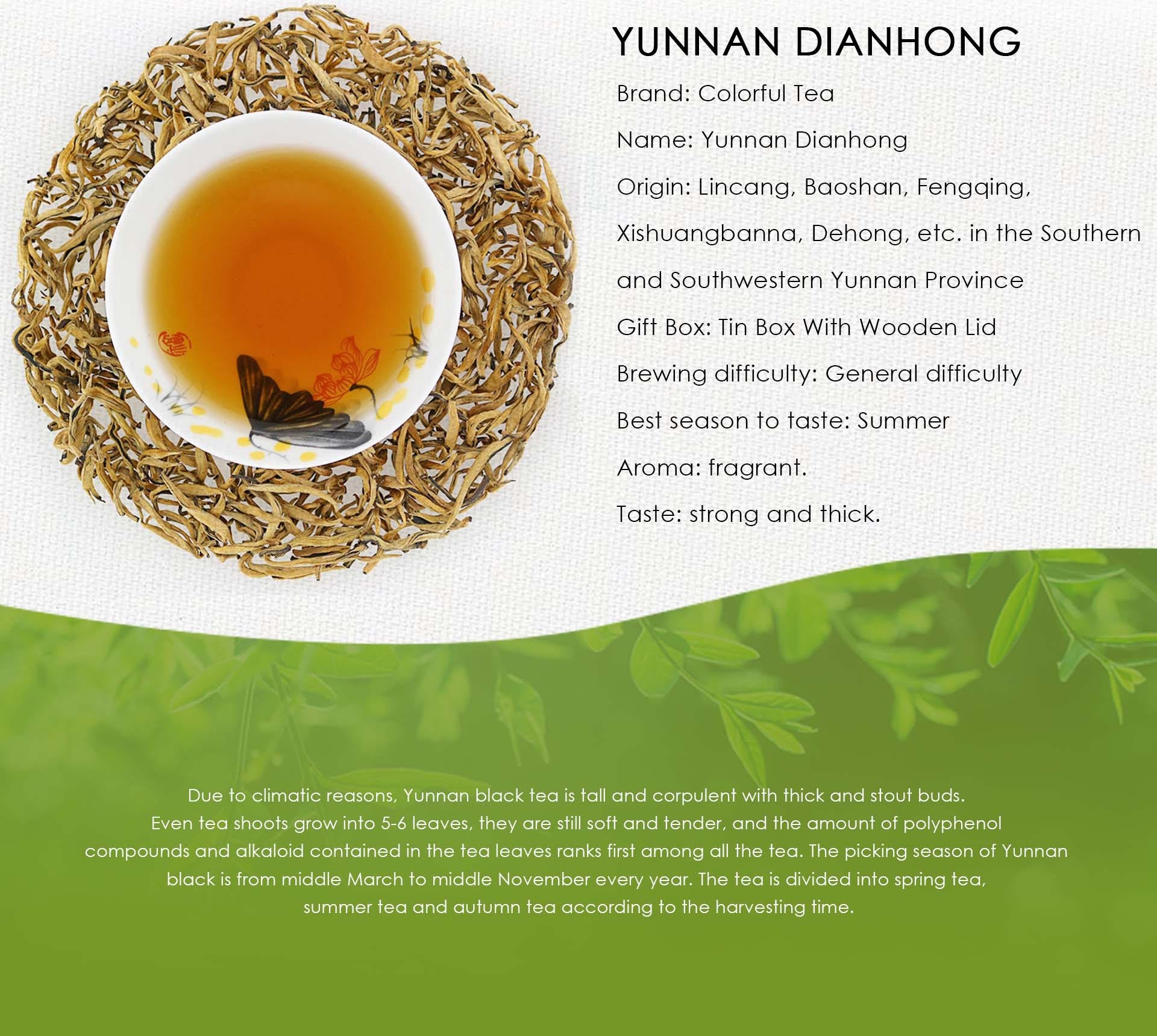
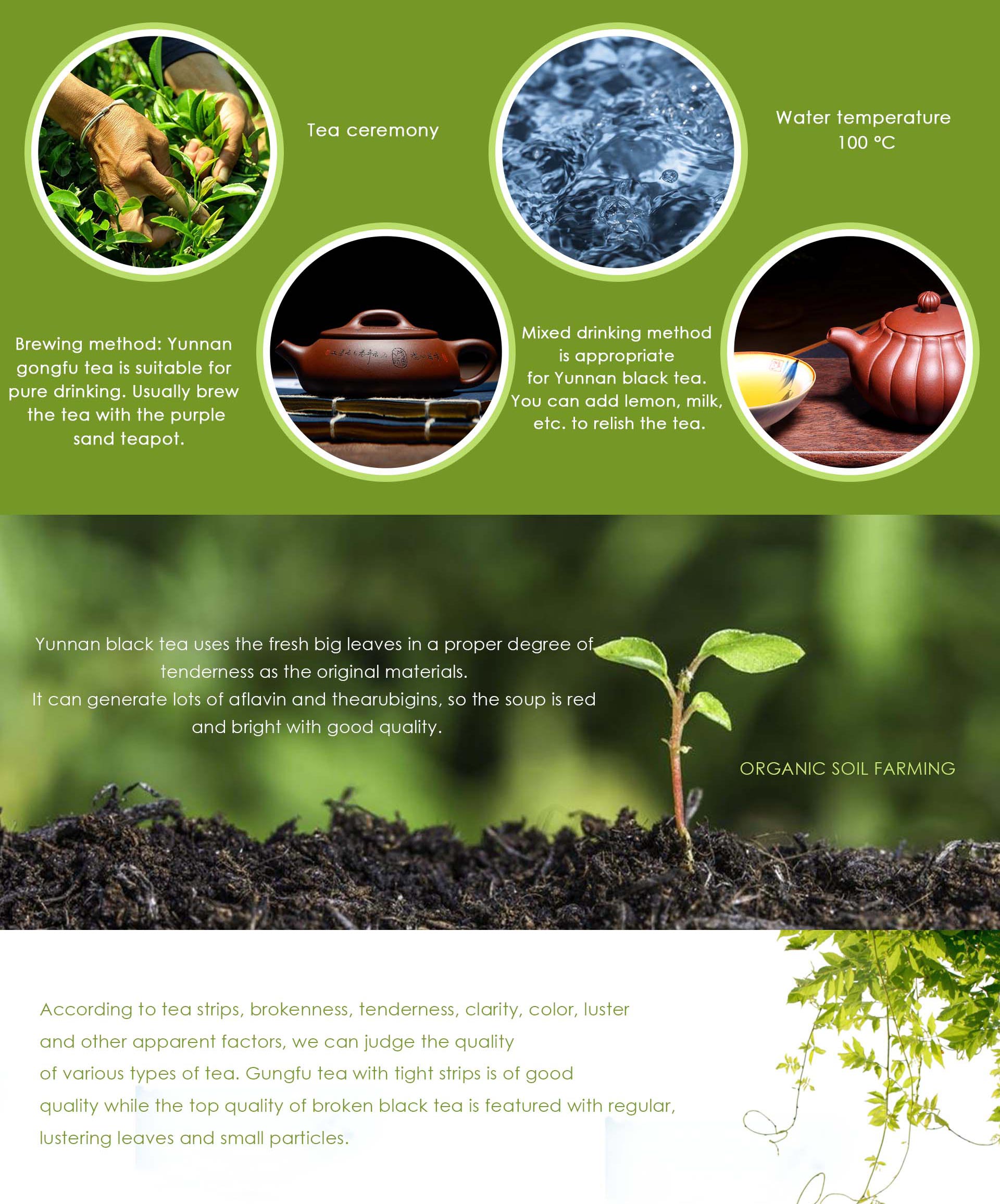
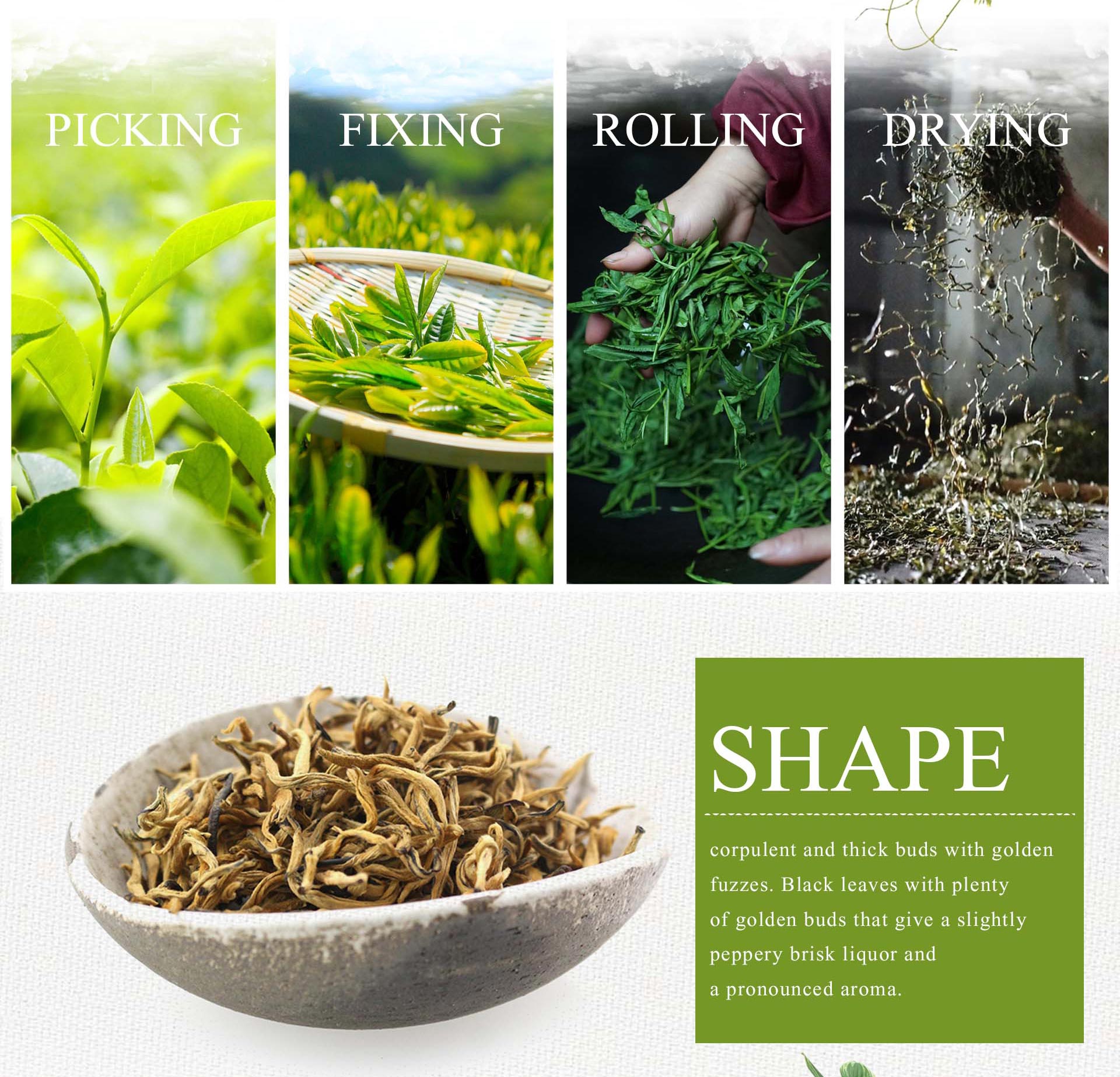
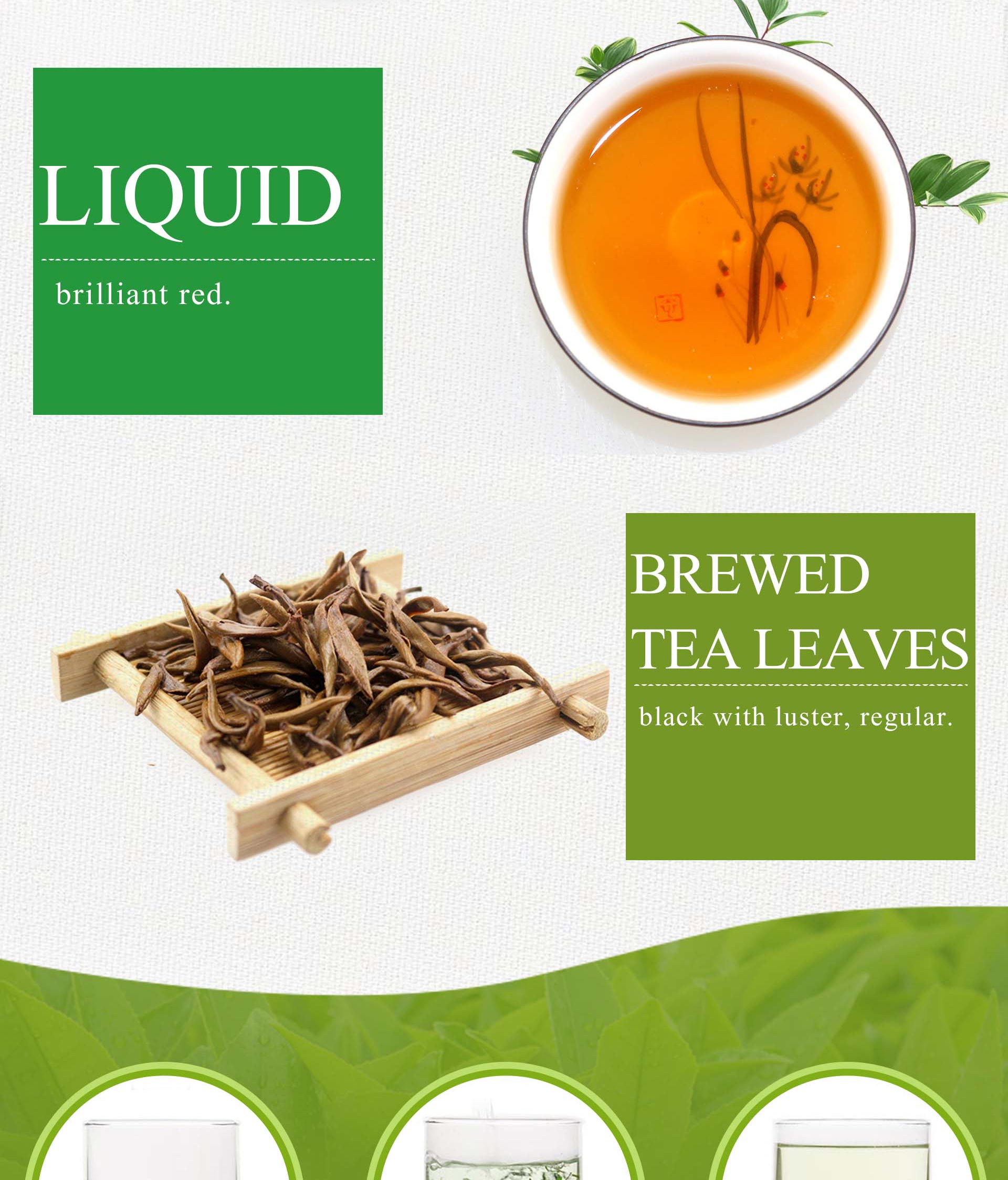

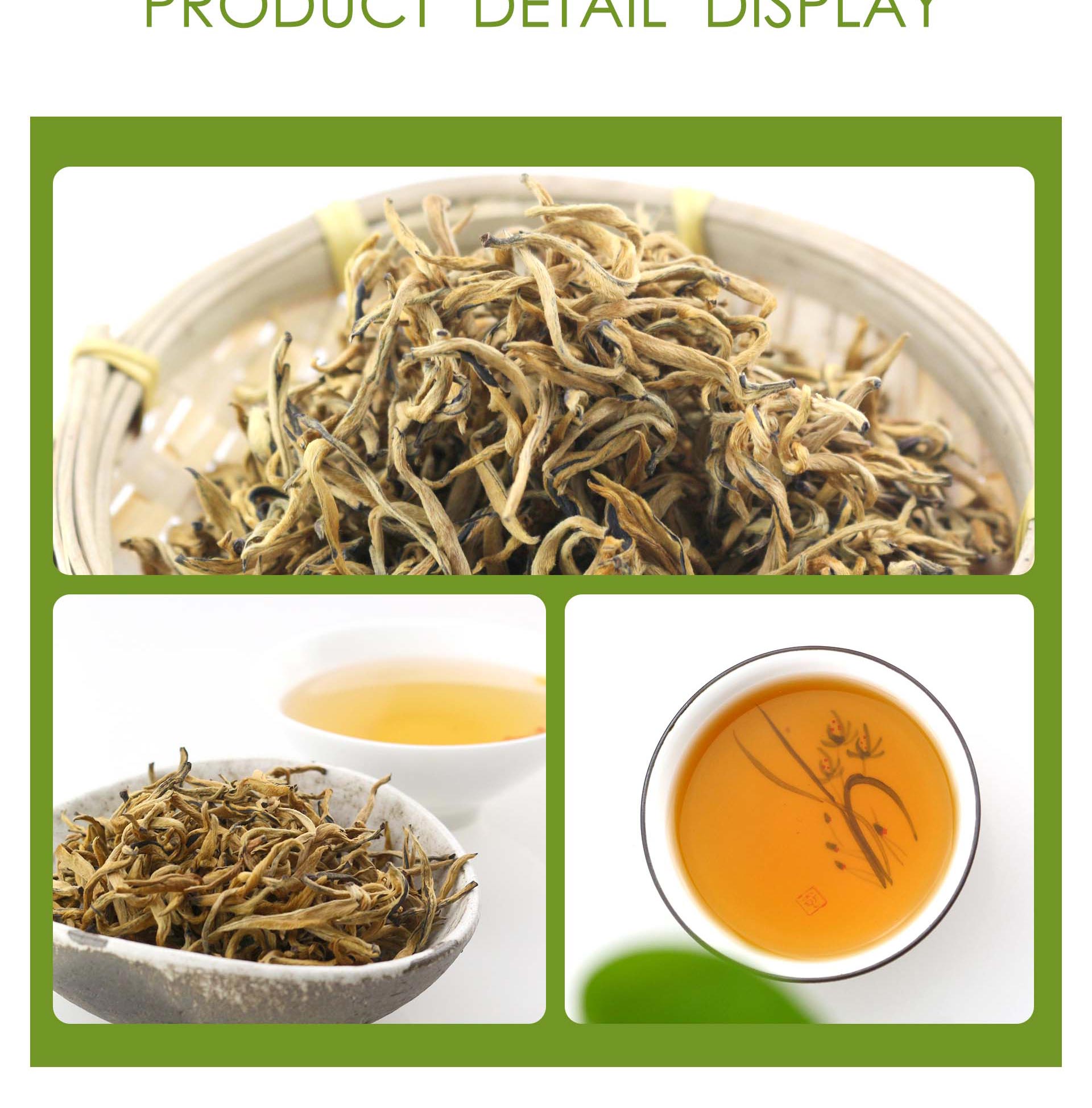
Top Teawares Store
Best Chinese Tea & Teawares Online Store Over 13 Years. Just be assured to purchase from us, all our products are high quality, noble and exquisite.
Shipping Information
We do offer Free Shipping and Express Shipping to worldwide.
- Free Shipping (8-12 Days): Normally, we will ship it by USPS or National Posts.
- Express Shipping (5-7 Days): Normally, we will ship it UPS, FedEx or DHL.
Express Shipping Cost is based on weight. Just add products to your cart and use the Shipping Calculator to see the shipping price.
Returns Policy
Zero Risk - Take Advantage of Our Free Return Policy.
We hope you have a pleasant shopping experience here, but if you are not satisfied and need to make a return, breathe easy. We do offer Free Return and Full Refund.
We have a 7-day return policy, which means you have 7 days after receiving your item to request a return.
Please contact us first for refunds before returning the items.






2025 Easter Day
All Items are Free Shipping
- Buy 2 Products or Above With 10% Discount.
- Buy 4 Products or Above With 15% Discount.
- Buy 6 Products or Above With 20% Discount.
- The Discount is not Available for Tea Leaves, Big Tables and Furitures.
Note: The Discount will Auto Apply in Shopping Cart. Valid till 2025/04/20.

What Customers Are Saying












Mikemc Cartney"I ordered a tea warmer. Not only is it beautiful and functional, but the customer service I received was outstandingly good!"
Britteny Russo"I saw this gorgeous set on a YouTube video and swooned over it every time I saw it featured. I was so excited when I was able to find it here! It is absolutely stunning in person and I love that you can see the beautiful color of your tea through the glass. Gorgeous piece I’ll have for the rest of my life!"
Ashley Mason"Tea pot is gorgeous and came well packed and all in one piece and quickly."
Daniel McCormick"I ordered a Tea pet for my girlfriend, Umi tea was quick to ship my order. The package itself was very well boxed up, I can't think of a single complaint."
Jackie Russell"I was very pleased with the order service and our tea stand was exactly as advertised, a great authentic product."
Courtney Lasch"Great company. Love their products! They have such a neat selection of products and I love ordering from them. Can't find a lot of their products elsewhere. Good prices and quick customer service. Would recommend!"
Eden Rivera"The tea set I ordered made an amazing gift and it truly felt great. It made my mother happy and made me happy to see her enjoy her new tea set."
Liz Beekman"Received a beautiful yixing tea set in perfect condition. The people at Umi Tea are also very kind in assisting and answering any questions you might have about your prospective purchase."
Hill Samantha"Umi tea sets customer services is very helpful."
Joss Gardner"I bought an tea set on this website, and their packaging is very perfect with a gift box. The tea set is also very beautiful. Recommend buying."
Anthony Smith"I'm quite satisfied to the products that I received. They were as promised and delivered unharmed to my home."
Alberto Marche"I received the cup but unfortunately it was broken. I contacted the customer service, and they were really nice and welcoming. I discussed this issue with them, and they immediately sent me another cup. The cup arrived in perfect conditions. I really love my cup; I’m using it every day and I want to buy more. The cup is handmade, with high quality clay and beautiful design - definitely worth it. I would recommend Umi Tea Sets to everyone."
Reviews on Trustpilot
· Trustworthy Shopping Experience: Customers Good Reviews on Trustpilot.
· With 4.7 Ratting Score on Trustpilot.
· 350+ Customers Reviews in Total.
· 300 + Reviews are Five Stars.
· 16+ Reviews are Fours Stars.
Reviews on Resellerratings
· Verified by Resellerratings for Trusted Online Shopping.
· With 4.1 Ratting Score on Resellerratings.
· 200+ Customers Reviews in Total.
· 157 + Reviews are Five Stars.
· 30+ Reviews are Fours Stars.











